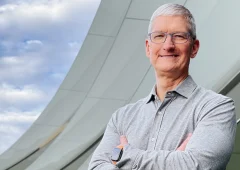Another Big Country Eyes the Creation of a National Bitcoin Reserve
27.11.2024 11:30 1 min. read Alexander Stefanov
An increasing number of countries are considering adding Bitcoin reserves to their financial strategies, following similar discussions emerging in the United States.
Brazil is taking steps to integrate cryptocurrency into its financial system, with federal deputy Eros Biondini proposing a bill to create a Sovereign Strategic Bitcoin Reserve (RESBit).
The initiative aims to diversify Brazil’s National Treasury assets, protect against currency risks, and support the adoption of blockchain and Drex, the country’s new digital currency.
The plan involves gradually acquiring Bitcoin, capped at 5% of international reserves, with funds managed using secure cold wallets. Spending would follow strict fiscal laws, with biannual reports submitted to the National Congress. Oversight would be handled by the Central Bank and Ministry of Finance, using blockchain and AI for transparency.
Biondini highlighted the strategic importance of this proposal, framing it as a critical step in aligning Brazil with global innovation trends.
The legislation also seeks to educate citizens about cryptocurrencies, addressing the increasing recognition of digital assets as a legitimate investment class.
By adopting a forward-thinking approach, the bill aims to position Brazil as a leader in the digital economy, leveraging blockchain’s potential for public and private sector transformation.
-
1
Bitcoin Reaches New All-Time High Above $116,000
11.07.2025 7:56 1 min. read -
2
What’s The Real Reason Behind Bitcoin’s Surge? Analyst Company Explains
12.07.2025 12:00 2 min. read -
3
Canadian Bank Sees Bitcoin Hitting $155,000 by 2025
15.07.2025 10:00 1 min. read -
4
Peter Schiff Warns of Dollar Collapse, Questions Bitcoin Scarcity Model
12.07.2025 20:00 1 min. read -
5
Strategy Claims It Can Weather a Bitcoin Crash to $20K Without Trouble
16.07.2025 14:08 1 min. read
Bitcoin Risk Cycle Flips Again as Market Enters Safer Zone
Bitcoin’s market signal has officially shifted back into a low-risk phase, according to a new chart shared by Bitcoin Vector in collaboration with Glassnode and Swissblock.
Robert Kiyosaki Warns of 1929-Style Crash, Urges Bitcoin Hedge
Financial author Robert Kiyosaki is once again sounding the alarm on America’s economic health.
Metaplanet Adds $92.5M in Bitcoin, Surpasses 17,000 BTC Holdings
Metaplanet Inc., a Tokyo-listed company, has just added 780 more Bitcoin to its treasury. The purchase, announced on July 28, cost around ¥13.666 billion or $92.5 million, with an average price of $118,622 per BTC.
China and U.S. Plan Trade Truce Extension Before Talks: How It Can Affect Bitcoin
The United States and China are expected to extend their trade truce by 90 days. The extension would delay new tariffs and create space for fresh negotiations in Stockholm.
-
1
Bitcoin Reaches New All-Time High Above $116,000
11.07.2025 7:56 1 min. read -
2
What’s The Real Reason Behind Bitcoin’s Surge? Analyst Company Explains
12.07.2025 12:00 2 min. read -
3
Canadian Bank Sees Bitcoin Hitting $155,000 by 2025
15.07.2025 10:00 1 min. read -
4
Peter Schiff Warns of Dollar Collapse, Questions Bitcoin Scarcity Model
12.07.2025 20:00 1 min. read -
5
Strategy Claims It Can Weather a Bitcoin Crash to $20K Without Trouble
16.07.2025 14:08 1 min. read


